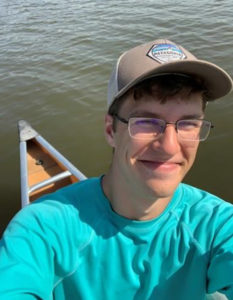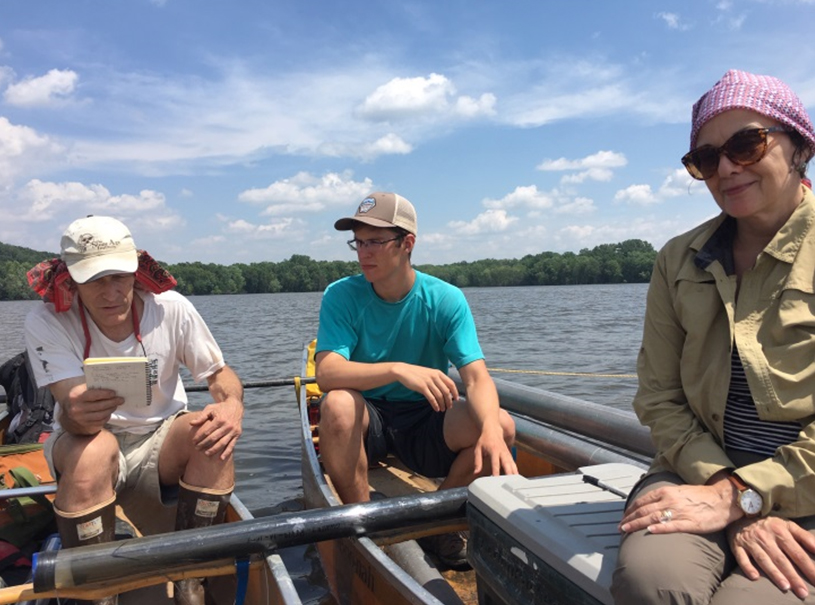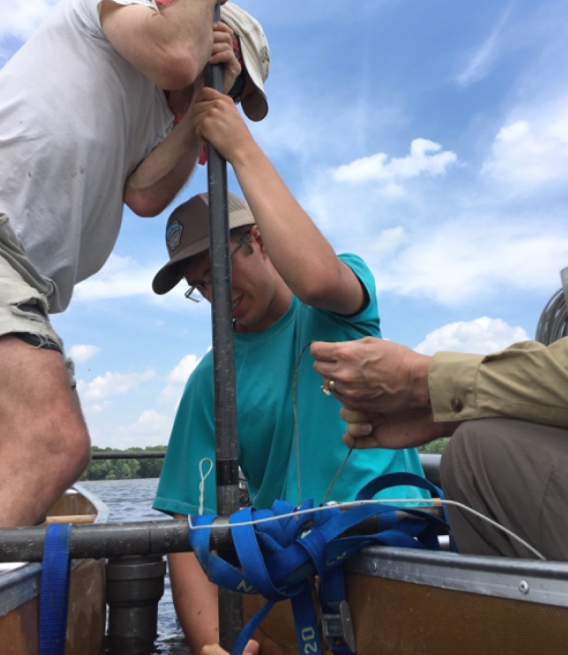 As a student at St. John’s University, Rob McManus has designed a project that puts him solidly in the professional research world. Interning with Dr. Carrie Jennings at Freshwater, he is documenting the history of some contaminants of emerging concern in the Twin Cities urban watershed, specifically commonly-used compounds that act as endocrine disrupting chemicals.
As a student at St. John’s University, Rob McManus has designed a project that puts him solidly in the professional research world. Interning with Dr. Carrie Jennings at Freshwater, he is documenting the history of some contaminants of emerging concern in the Twin Cities urban watershed, specifically commonly-used compounds that act as endocrine disrupting chemicals.
With a double major in biology and environmental studies and a minor in chemistry, Rob is at home with the technical aspects of his project, which have included extracting core samples from lakes that are downstream from wastewater treatment plants. The compounds under study – nonylphenol and its ethoxylates – are gradually phasing out of use but are still produced as a byproduct of processes used in wastewater treatment plants.
Rob’s work with Dr. Jennings on the project has also taught him how to make a project happen. He presented the proposed project to a watershed district and received a grant of $10,000 to cover field costs. He also did a lot of background research, took a two-day core workshop, created a budget, and handled the selection of the analytical lab. He helped perform the initial core description, which will be followed by an in-depth pollen analysis, lead-210 dating, and a chemical analysis to accurately reconstruct the contaminants’ history.
By assessing the current concentrations of the contaminants and how they have changed over time, they hope to better inform the public and Minnesota lawmakers about policies that will make a meaningful difference reducing the harm to human and aquatic health from these types of compounds in Minnesota.

